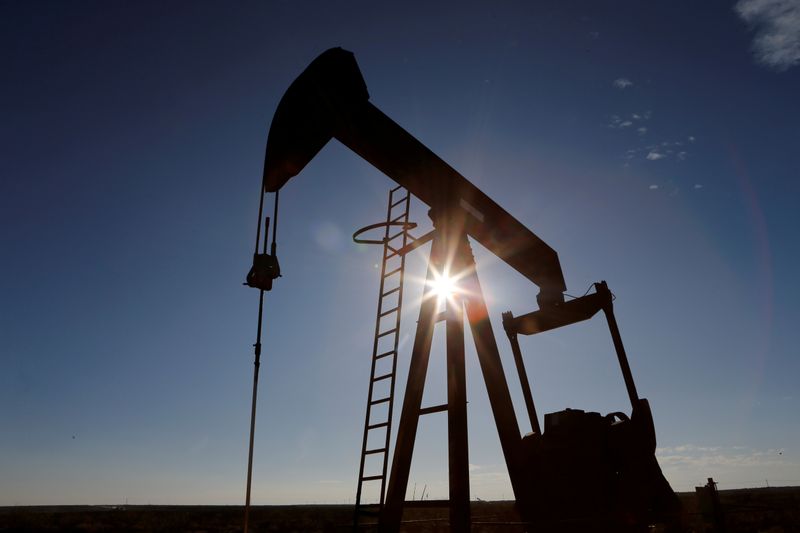By Naveen Thukral and Shu Zhang
SINGAPORE (Reuters) - Crude oil gained more ground on Tuesday, with prices underpinned by expectations of U.S. stimulus and a rebound in Asian demand as economies reopen.
Brent crude (LCOc1) added 22 cents, or 0.5%, to $45.21 a barrel, as of 0441 GMT. West Texas Intermediate U.S. crude (CLc1) rose 32 cents, or 0.8%, to $42.26 a barrel.
"Crude oil gained amid signs of further stimulus measures," ANZ said in a note.
"U.S. lawmakers continued negotiations on the massive virus relief economic package with Treasury Secretary Steven Mnuchin saying there are areas where compromise is possible and a fair deal could be agreed upon. Sentiment was also boosted by comments from Saudi Aramco (SE:2222) that demand is improving."
Prices found support after U.S. President Donald Trump tweeted that top congressional Democrats wanted to meet with him on coronavirus-related economic relief.
The talks between Democrats and the Trump administration broke down last week.
A weaker U.S. dollar also helped support higher oil prices, said Energy Aspects analyst Virendra Chauhan.
After steadying on Monday the dollar was again slipping on Tuesday, easing 0.1% against a basket of currencies (=USD) and falling further against riskier currencies like the Australian dollar.[FRX/]
U.S. passenger airline traffic, which was hit hard by the coronavirus pandemic, was down 80% in June from a year earlier, official figures showed, but still nearly twice the levels of May.
On Sunday, Saudi Arabian Aramco CEO Amin Nasser said he sees oil demand rebounding in Asia as economies gradually open up.
China's factory deflation eased in July, driven by a rise in global oil prices and as industrial activity climbed back towards pre-coronavirus levels, adding to signs of recovery in the world's second-largest economy.

Energy companies have begun taking back millions of barrels of oil from the U.S. government's emergency stockpile after renting storage in the facility to help manage a glut of crude this spring after energy demand collapsed during COVID-19 lockdowns, a Department of Energy website showed on Monday.